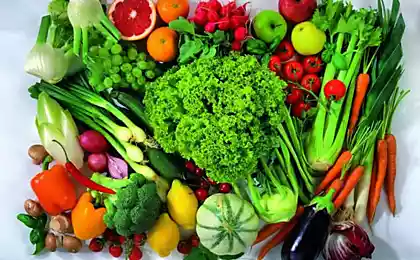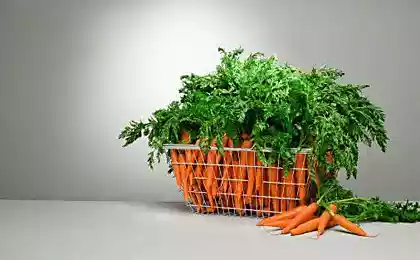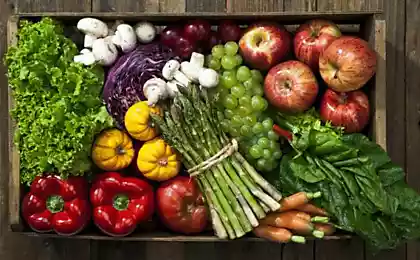758
Leo Babauta: 20 tips for those who want to become a vegetarian
1. The reason must be good
If You just for fun want to become a vegetarian, you will probably not last long – not because it's complicated, but because any life change or changing habits require some motivation. You need first of all to think about why you want to become vegetarian, and believe in it. The rest is easy.

Leo Babauta "How to Become a Vegetarian, the Easy Way"
2. Read
To start something new, I tend to read as much as possible about what I'm going to do. I suggest to do the same with vegetarianism. Read a few good books from the library (or better yet – to take them from my vegetarian friends). And there are a great many good sites on the Internet.
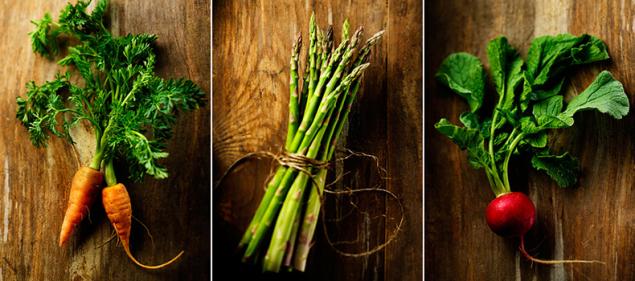
3. Find good recipes
You don't need to go out and buy a bunch of new publications, although it is definitely also an option. But again, there are many excellent recipes on the Internet. In fact, it might be a little overwhelming... don't worry, you don't need to make any decisions. Just look through the recipes, take note of the ones that look really good, and try to cook some of them. You have a whole life ahead of you to test and choose the recipes!
4. Try one new recipe a week
My advice is to just try one new vegetarian recipe a week. If you like it, add it to your collection of basic recipes that you cook regularly. If the recipe is not so good, try next week another. In the near future you will find a good list of 5-10 great recipes that you love to cook and eat. And this is in fact what you cook and eat constantly, regardless of whether you are a vegetarian or someone who eats meat. Most people regularly cook only 7-10 recipes. Once you have a lot of these vegetarian recipes are you ready to vegetarianism.
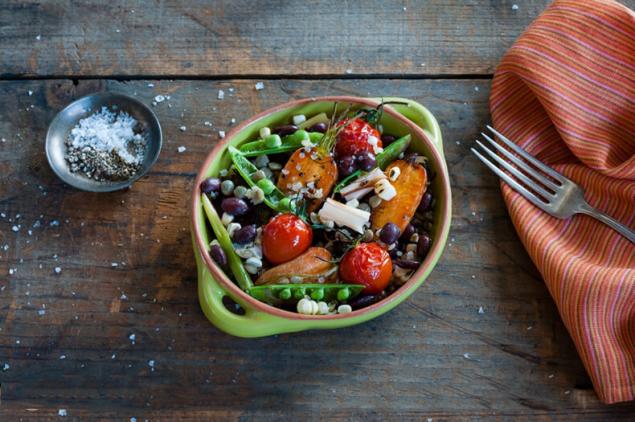
5. Replace
Also try to cook regular recipes that you love, but instead of using meat, use "betmania" substitutes. So, if you love to eat spaghetti or chili, for example, replace meat with soy, and cook it as usual. There are alternatives to almost any food, and some of them are very good. You can eat what you usually eat, but without meat.
6. Start with red meat
I suggest a gradual transition into vegetarianism... although you can do all at once, I have found that for many people a gradual transition works better. No need to give up all meat at once. Try some new recipes, eat one vegetarian dish in the first week, two meals the second, and so on. If you start, start with the rejection of red meat, because this food is usually the least healthy.
7. Then other meats
In a few weeks without red meat, try to eliminate the pork for a couple of weeks. Then eliminate the chicken and seafood. During these two weeks (and you can even do it for 3 weeks or a month at each stage, if you want to go more slowly), you'll hardly notice the difference. I found that I'm not asking for more meat, although it took about a week.
8. About eggs and dairy
The opinions of vegetarians vary widely on this issue, so you don't have to give up dairy products or eggs, if you give up meat. Do what you think is right. But if you are already on the path of vegetarianism for some time, you can try to go a little further (in the areas of health, environmental protection and help for the suffering animals), consider the renunciation of these products. At least because they are often high in saturated fat, especially compared to the soy alternative. It was easy for me to give up eggs since I was never their biggest fan, and when transitioning to soy milk took me a few days to get used to... although now I can't remember the taste of milk.
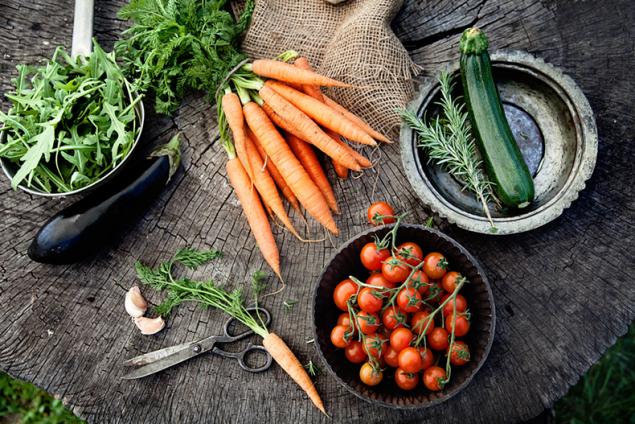
9. Think about the products of their daily consumption
A useful exercise is to make a list of the foods you regularly eat for Breakfast, lunch, dinner, snacks and desserts. No dishes, and ingredients. And then domatia about vegetarian alternatives, and make a new list. For example, instead of grilled chicken, you can try tofu. With a new list of foods you should not experience problems with their storage in the refrigerator or pantry.
10. All in one fell swoop
Some people prefer to refuse any meat at once. Although it requires a little more determination than the gradual decision, I would argue that it's really not hard. Just prepare yourself by taking the steps above (finding recipes, substitutes, new product list and more to read), and then make your decision. You'll need a few days to get used to, and then it will deliver a very small inconvenience. And then, when you will have to do without meat, you will only need to work on how and what is outside the home, and other similar situations.
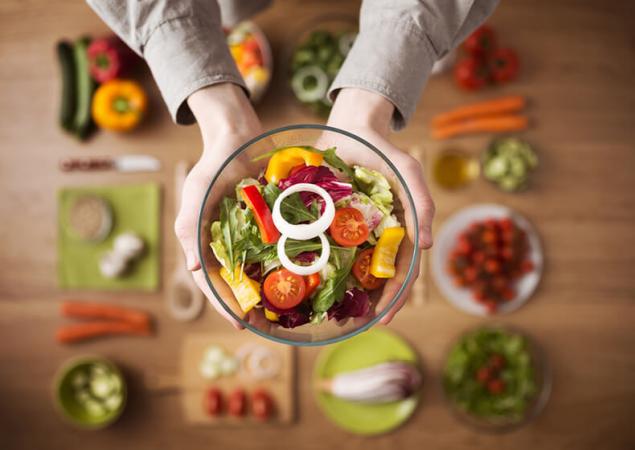
11. Enough protein
One of the myths about vegetarianism is that you're not getting enough protein. In fact, those who eat meat, usually receive more protein than they need. Protein needs for an average adult less than usual people think. If you have different diets (not just junk food, for example) that includes vegetables, grains, beans, nuts, soy protein, etc., you will be fine. It would be difficult to make a meal plan where you get enough protein (the same example with junk food). Another myth is that you need to eat various types of protein in one dish (or even one day) to get the full range of proteins from plants... in fact, if you eat varied proteins (such as listed above) within a few days, it will be good. And soy protein is full of protein, just like meat.
12. Junk food
I'll say it again, you can be a vegetarian and have poor health if you eat junk food. Being a vegetarian, you cannot eat junk food (although you can indulge yourself a little more now that you don't eat meat). Try to stick to fruits and veggies, whole grain products, beans, nuts, soy protein, milk low-fat, etc.
13. Ethnic food
One of the biggest advantages for people who become vegetarians is that it often encourages people to try new and exciting ethnic dishes (or reminds them of foods they love, but don't eat much). Great vegetarian dishes around the world, from Italian pastas, to a variety of Indian dishes, spicy dishes of Thailand to food from China, Ethiopia, Mexico, Morocco, South America, etc. Might be interesting to make a series of theme weeks, trying vegetarian dishes from a certain country in one week, and then move around the world, selecting the other great ethnic dishes to sample.
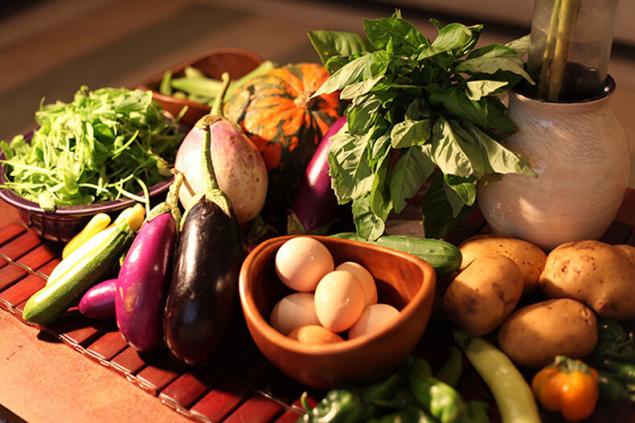
14. Tell your friends and family
If you are really going to become a vegetarian, you need to tell the people you know and love. You will dine in the restaurant, at home, in social gatherings, at work, and so it will be better for everyone if they know what you are doing. They can cook vegetarian dishes especially for you, or you can advise them to try if they know why. Some may have with this problems. Just try to explain to them, without going to bitter disputes, and ask them to be understanding (and give some of your products in the sample). Do not force to attract to the vegetarianism of anyone, and give them additional information if they are interested.
15. Have fun
First of all, do not make the transition to vegetarianism stressful ordeal. If you feel that you limit yourself, you will not last long. But, if you feel like doing something good and along with this try delicious food, you will be easy to stick with this for a long time (I hope forever). Good luck to you in this way.
16. Plan ahead
Often, what becomes a problem for new vegetarians is that when they go somewhere, they don't think will be there. Going to a party or dinner, a good idea can be much if you cook a great dish and bring it with you (we'll just tell the hosts in advance). Fate will not lead you to McDonald's or even starvation, if you get lunch or snacks in advance.
17. Prepare in advance
Another problem arises when we don't have a vegetarian meal ready to eat, and therefore we choose what is easier (if we don't think about what they eat or too hungry to wait for cooking). Instead, you could cook a big pot of vegetarian chili or soup or something, but kept it in the fridge for that time when you are hungry or have no time to cook.
18. Vegetarian snacks
I love to eat fruits and cut vegetables, but there are many other great snacks. Roasted (or raw) almonds, hummus (paste made of peas), pita bread or vegetables, corn chips and salsa, beans, low-fat, berries with soy yogurt, whole wheat bread, Kashi crackers ... dozens and dozens of appetizers, if you will only look around. Near you, at home, at work and on the road.

19. Vegetarian restaurants
On the island of GUAM only one vegetarian restaurant and, unfortunately, it is closed at night and weekends (this is a Seventh Day Adventist, and open for lunch on weekdays, and it's great). But you can live in an area with dozens of great vegetarian restaurants. Give them a chance to please you! You can discover these wonderful dishes that will thank your lucky stars that you decided to try vegetarianism. Otherwise, in most restaurants, there are options of vegetarian dishes, or they can prepare vegetarian dishes to order.
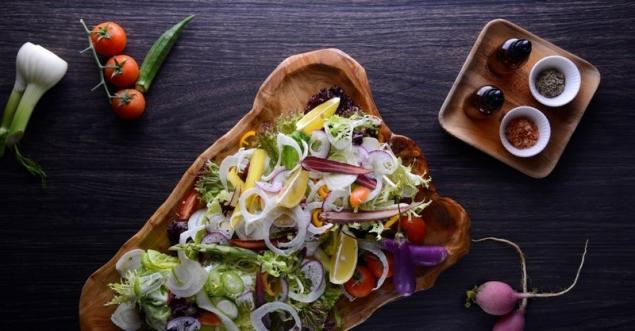
The most important nutrients for those who do not eat meat
Living nutrition: the unique secrets from Marva Oganyan!
20. Vegetarian semi-finished products
In the frozen food section of your supermarket you can find a lot of vegetarian foods that can be cooked in the microwave. You can take some of them for the sample. Keep in mind that, like most semi-finished products more expensive than those foods that you can cook at home, and most of them are not very useful. But you can find there some pretty useful products. Anyway, always good to have a few convenience foods in the freezer, just in case.published
Source: selfgrowth.ru/food/2013/06/go_veg/
If You just for fun want to become a vegetarian, you will probably not last long – not because it's complicated, but because any life change or changing habits require some motivation. You need first of all to think about why you want to become vegetarian, and believe in it. The rest is easy.

Leo Babauta "How to Become a Vegetarian, the Easy Way"
2. Read
To start something new, I tend to read as much as possible about what I'm going to do. I suggest to do the same with vegetarianism. Read a few good books from the library (or better yet – to take them from my vegetarian friends). And there are a great many good sites on the Internet.

3. Find good recipes
You don't need to go out and buy a bunch of new publications, although it is definitely also an option. But again, there are many excellent recipes on the Internet. In fact, it might be a little overwhelming... don't worry, you don't need to make any decisions. Just look through the recipes, take note of the ones that look really good, and try to cook some of them. You have a whole life ahead of you to test and choose the recipes!
4. Try one new recipe a week
My advice is to just try one new vegetarian recipe a week. If you like it, add it to your collection of basic recipes that you cook regularly. If the recipe is not so good, try next week another. In the near future you will find a good list of 5-10 great recipes that you love to cook and eat. And this is in fact what you cook and eat constantly, regardless of whether you are a vegetarian or someone who eats meat. Most people regularly cook only 7-10 recipes. Once you have a lot of these vegetarian recipes are you ready to vegetarianism.

5. Replace
Also try to cook regular recipes that you love, but instead of using meat, use "betmania" substitutes. So, if you love to eat spaghetti or chili, for example, replace meat with soy, and cook it as usual. There are alternatives to almost any food, and some of them are very good. You can eat what you usually eat, but without meat.
6. Start with red meat
I suggest a gradual transition into vegetarianism... although you can do all at once, I have found that for many people a gradual transition works better. No need to give up all meat at once. Try some new recipes, eat one vegetarian dish in the first week, two meals the second, and so on. If you start, start with the rejection of red meat, because this food is usually the least healthy.
7. Then other meats
In a few weeks without red meat, try to eliminate the pork for a couple of weeks. Then eliminate the chicken and seafood. During these two weeks (and you can even do it for 3 weeks or a month at each stage, if you want to go more slowly), you'll hardly notice the difference. I found that I'm not asking for more meat, although it took about a week.
8. About eggs and dairy
The opinions of vegetarians vary widely on this issue, so you don't have to give up dairy products or eggs, if you give up meat. Do what you think is right. But if you are already on the path of vegetarianism for some time, you can try to go a little further (in the areas of health, environmental protection and help for the suffering animals), consider the renunciation of these products. At least because they are often high in saturated fat, especially compared to the soy alternative. It was easy for me to give up eggs since I was never their biggest fan, and when transitioning to soy milk took me a few days to get used to... although now I can't remember the taste of milk.

9. Think about the products of their daily consumption
A useful exercise is to make a list of the foods you regularly eat for Breakfast, lunch, dinner, snacks and desserts. No dishes, and ingredients. And then domatia about vegetarian alternatives, and make a new list. For example, instead of grilled chicken, you can try tofu. With a new list of foods you should not experience problems with their storage in the refrigerator or pantry.
10. All in one fell swoop
Some people prefer to refuse any meat at once. Although it requires a little more determination than the gradual decision, I would argue that it's really not hard. Just prepare yourself by taking the steps above (finding recipes, substitutes, new product list and more to read), and then make your decision. You'll need a few days to get used to, and then it will deliver a very small inconvenience. And then, when you will have to do without meat, you will only need to work on how and what is outside the home, and other similar situations.

11. Enough protein
One of the myths about vegetarianism is that you're not getting enough protein. In fact, those who eat meat, usually receive more protein than they need. Protein needs for an average adult less than usual people think. If you have different diets (not just junk food, for example) that includes vegetables, grains, beans, nuts, soy protein, etc., you will be fine. It would be difficult to make a meal plan where you get enough protein (the same example with junk food). Another myth is that you need to eat various types of protein in one dish (or even one day) to get the full range of proteins from plants... in fact, if you eat varied proteins (such as listed above) within a few days, it will be good. And soy protein is full of protein, just like meat.
12. Junk food
I'll say it again, you can be a vegetarian and have poor health if you eat junk food. Being a vegetarian, you cannot eat junk food (although you can indulge yourself a little more now that you don't eat meat). Try to stick to fruits and veggies, whole grain products, beans, nuts, soy protein, milk low-fat, etc.
13. Ethnic food
One of the biggest advantages for people who become vegetarians is that it often encourages people to try new and exciting ethnic dishes (or reminds them of foods they love, but don't eat much). Great vegetarian dishes around the world, from Italian pastas, to a variety of Indian dishes, spicy dishes of Thailand to food from China, Ethiopia, Mexico, Morocco, South America, etc. Might be interesting to make a series of theme weeks, trying vegetarian dishes from a certain country in one week, and then move around the world, selecting the other great ethnic dishes to sample.

14. Tell your friends and family
If you are really going to become a vegetarian, you need to tell the people you know and love. You will dine in the restaurant, at home, in social gatherings, at work, and so it will be better for everyone if they know what you are doing. They can cook vegetarian dishes especially for you, or you can advise them to try if they know why. Some may have with this problems. Just try to explain to them, without going to bitter disputes, and ask them to be understanding (and give some of your products in the sample). Do not force to attract to the vegetarianism of anyone, and give them additional information if they are interested.
15. Have fun
First of all, do not make the transition to vegetarianism stressful ordeal. If you feel that you limit yourself, you will not last long. But, if you feel like doing something good and along with this try delicious food, you will be easy to stick with this for a long time (I hope forever). Good luck to you in this way.
16. Plan ahead
Often, what becomes a problem for new vegetarians is that when they go somewhere, they don't think will be there. Going to a party or dinner, a good idea can be much if you cook a great dish and bring it with you (we'll just tell the hosts in advance). Fate will not lead you to McDonald's or even starvation, if you get lunch or snacks in advance.
17. Prepare in advance
Another problem arises when we don't have a vegetarian meal ready to eat, and therefore we choose what is easier (if we don't think about what they eat or too hungry to wait for cooking). Instead, you could cook a big pot of vegetarian chili or soup or something, but kept it in the fridge for that time when you are hungry or have no time to cook.
18. Vegetarian snacks
I love to eat fruits and cut vegetables, but there are many other great snacks. Roasted (or raw) almonds, hummus (paste made of peas), pita bread or vegetables, corn chips and salsa, beans, low-fat, berries with soy yogurt, whole wheat bread, Kashi crackers ... dozens and dozens of appetizers, if you will only look around. Near you, at home, at work and on the road.

19. Vegetarian restaurants
On the island of GUAM only one vegetarian restaurant and, unfortunately, it is closed at night and weekends (this is a Seventh Day Adventist, and open for lunch on weekdays, and it's great). But you can live in an area with dozens of great vegetarian restaurants. Give them a chance to please you! You can discover these wonderful dishes that will thank your lucky stars that you decided to try vegetarianism. Otherwise, in most restaurants, there are options of vegetarian dishes, or they can prepare vegetarian dishes to order.

The most important nutrients for those who do not eat meat
Living nutrition: the unique secrets from Marva Oganyan!
20. Vegetarian semi-finished products
In the frozen food section of your supermarket you can find a lot of vegetarian foods that can be cooked in the microwave. You can take some of them for the sample. Keep in mind that, like most semi-finished products more expensive than those foods that you can cook at home, and most of them are not very useful. But you can find there some pretty useful products. Anyway, always good to have a few convenience foods in the freezer, just in case.published
Source: selfgrowth.ru/food/2013/06/go_veg/
Hydrogen boiler for house — budget and environmentally friendly
Reading for the fall: 11 of the mandatory books list Harvard business school







